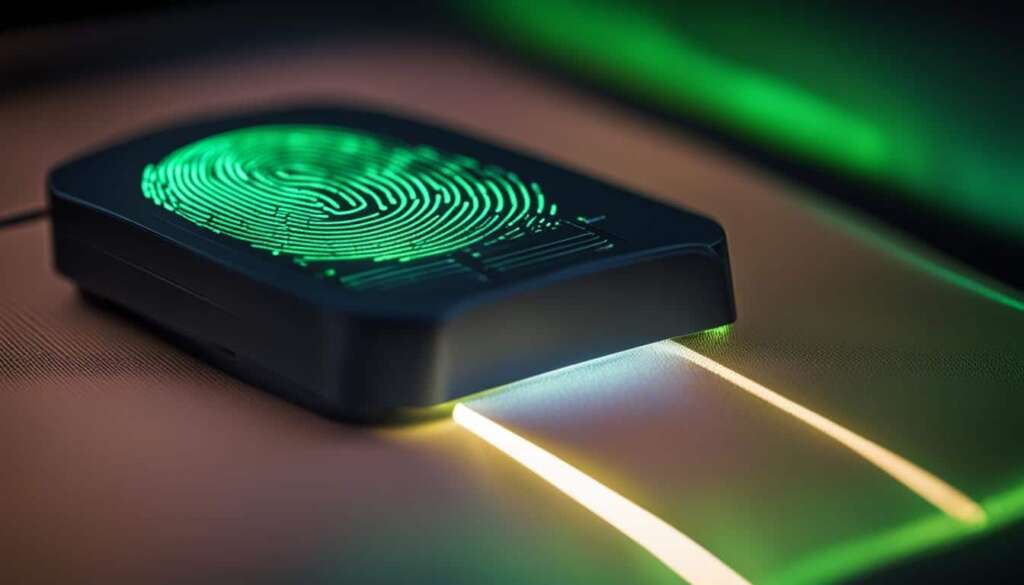Table of Contents
Former biometrics and surveillance camera commissioner, Professor Fraser Sampson, has joined the advisory board of Facewatch. This exciting addition to the Facewatch team brings valuable expertise and experience in the field of biometrics and surveillance technology.
Professor Fraser Sampson recently left his watchdog role on October 31 and wasted no time in registering as a company director at Facewatch the following day. Although his transition has sparked some controversy and accusations, his vast knowledge and insights will undoubtedly contribute to Facewatch’s mission of enhancing crime prevention through advanced facial recognition technology.
Facewatch, a leading provider of biometric surveillance cameras, utilizes facial recognition technology to cross-check individuals against a watch list. Their innovative solution has already been successfully implemented in hundreds of high-street shops and supermarkets.
Stay tuned for more exciting news and updates from Facewatch as they continue to revolutionize crime prevention and public safety through cutting-edge biometric technology.
Concerns Over Biometric Data Collection for Migrants and Asylum Seekers
The recently ratified AI Act in the Eurozone has sparked concerns regarding the exclusion of migrants and asylum seekers from the protective measures of AI biometric systems. While the act includes provisions to safeguard individuals’ rights, exceptions have been made for high-risk systems used in areas such as national security, law enforcement, and migration. These exceptions allow authorities to bypass core provisions, enabling the use of live facial recognition technology in public spaces to search for crime suspects, as well as the recognition of emotions in asylum seekers.
The final text of the AI Act will determine the level of protection for migrants and asylum seekers. However, concerns have already been raised about the potential violation of fundamental rights and the securitization of migrant flows. Of particular worry is the outsourcing of biometric data management to third countries along the Balkan migrant route. This raises questions about data security and the potential for misuse or abuse of biometric migration systems.
In order to address these concerns, it is crucial for policymakers and stakeholders to carefully navigate the implementation of AI biometric systems in the context of migration. Striking the right balance between security and the protection of human rights is imperative in order to ensure fair and ethical practices in the collection and use of biometric data for migrants and asylum seekers.
“The use of AI biometric systems in migration scenarios should be guided by a comprehensive and transparent framework that prioritizes the safeguarding of individuals’ rights and prevents the potential misuse or abuse of technology.” – [Quote Source]
Biometrics for Remote Hiring Practices
Companies in the identity and security screening space are increasingly turning to biometrics to secure remote hiring practices. One notable example is HireRight, a global background screening services company, which has partnered with digital ID firm Yoti to incorporate face verification into its Global ID identity verification service. This innovative solution allows for remote verification of a candidate’s identity and the validation of identity documents through digital liveness detection and biometric face matching.
Another player in this space, Sterling Check, an identity and background services provider, is rebranding itself as Sterling in the Asia-Pacific region to reflect the global nature of hiring practices. With the adoption of biometric background checks, organizations can ensure that they are hiring the right candidates while maintaining high standards of public safety and protection.
The Benefits of Biometrics in Remote Hiring
Biometrics, such as face verification, offer several advantages for remote hiring practices:
- Enhanced Security: By incorporating biometric authentication, companies can significantly reduce the risk of identity fraud and impersonation.
- Simplified Process: Remote identity verification eliminates the need for in-person document checks, streamlining the hiring process and reducing administrative burdens.
- Efficient and Scalable: Biometric solutions enable quick and accurate verification, making it easier to process a large volume of candidates during peak hiring periods.
The use of biometrics in remote hiring practices not only improves security and efficiency but also helps organizations stay compliant with regulations and industry standards.
The Role of Biometrics in Ensuring Trust and Accuracy
Biometric technologies provide a reliable means of verifying an individual’s identity, allowing organizations to build trust with their remote hires. By leveraging digital liveness detection and biometric face matching, employers can ensure that the person on the other end of the virtual interview is indeed who they claim to be.
Biometrics Beyond Remote Hiring
Biometric technologies have applications beyond remote hiring practices. They can be utilized in various industries and sectors where identity validation and security are paramount. For example, biometric background checks are being recommended for emergency medical services (EMS) personnel to uphold public safety standards.
Universal Biometric Background Checks for EMS Personnel
The Interstate Commission for EMS Personnel Practice is advocating for universal biometric background checks for EMS personnel. This recommendation is based on the frequent interaction of EMS practitioners with vulnerable populations and the need for consistent public safety and protection measures. The Commission recommends a national standard for FBI-compliant biometric criminal history record checks on applicants for an EMS license, ensuring the secure transfer of primary source data by the FBI. Currently, 24 states mandate biometric criminal history checks under the Recognition of EMS Personnel Practice Interstate Compact (REPLICA), and the Commission is calling for this practice to be implemented nationwide to uphold the highest safety and trust standards in medical professional credentialing.
Biometric background checks for EMS personnel play a crucial role in enhancing public safety. By utilizing advanced biometric technology, such as fingerprint or facial recognition, healthcare professionals responsible for emergency medical services can undergo comprehensive screenings to identify any criminal history or potential risks that may compromise patient wellbeing. These checks not only safeguard vulnerable populations but also maintain the integrity of the EMS workforce, ensuring that only qualified and trustworthy individuals are entrusted with the responsibility of saving lives.
As the demand for efficient and reliable healthcare services continues to grow, the implementation of universal biometric background checks for EMS personnel becomes imperative. By establishing a consistent and standardized approach across all states, the healthcare industry can enhance its ability to accurately assess individuals seeking to join the EMS workforce. These FBI-compliant checks enable thorough scrutiny of an applicant’s criminal history, providing healthcare organizations with the necessary information to make informed decisions and prioritize public safety. By embracing biometric background checks, the EMS sector can reinforce its commitment to excellence in patient care and reinforce trust within the healthcare community.
FAQ
Who has recently joined the advisory board of Facewatch?
Professor Fraser Sampson, the former biometrics and surveillance camera commissioner, has joined the advisory board of Facewatch.
When did Professor Fraser Sampson leave his previous role?
Professor Fraser Sampson left his watchdog role on October 31.
What is Facewatch’s mission?
Facewatch aims to enhance crime prevention with advanced facial recognition technology.
How does Facewatch use facial recognition technology?
Facewatch uses biometric surveillance cameras to check faces against a watch list in high-street shops and supermarkets.
What are the concerns regarding biometric data collection for migrants and asylum seekers?
The recently ratified AI Act in Europe has raised concerns about the exclusion of migrants and asylum seekers from the protections of AI biometric systems, particularly in public spaces and migration contexts.
What exceptions are included in the AI Act?
The AI Act includes exceptions for high-risk systems used in national security, law enforcement, and migration contexts, allowing authorities to avoid core provisions.
What companies are incorporating biometrics into remote hiring practices?
HireRight has partnered with digital ID firm Yoti to incorporate face verification into its Global ID identity verification service. Sterling Check is also rebranding as Sterling in the Asia-Pacific region to reflect global hiring practices.
How are biometrics being used in remote hiring?
Biometrics such as face matching and digital liveness detection are being used for remote verification of a candidate’s identity and validation of identity documents.
Why are biometric background checks recommended for EMS personnel?
Biometric background checks are recommended for EMS personnel to ensure consistent public safety and protection measures due to their frequent interaction with vulnerable populations.
What is the Interstate Commission for EMS Personnel Practice advocating for?
The Interstate Commission for EMS Personnel Practice is advocating for universal biometric background checks for EMS personnel.
How many states currently mandate biometric criminal history checks for EMS personnel?
Currently, 24 states mandate biometric criminal history checks for EMS personnel under the Recognition of EMS Personnel Practice Interstate Compact (REPLICA).













